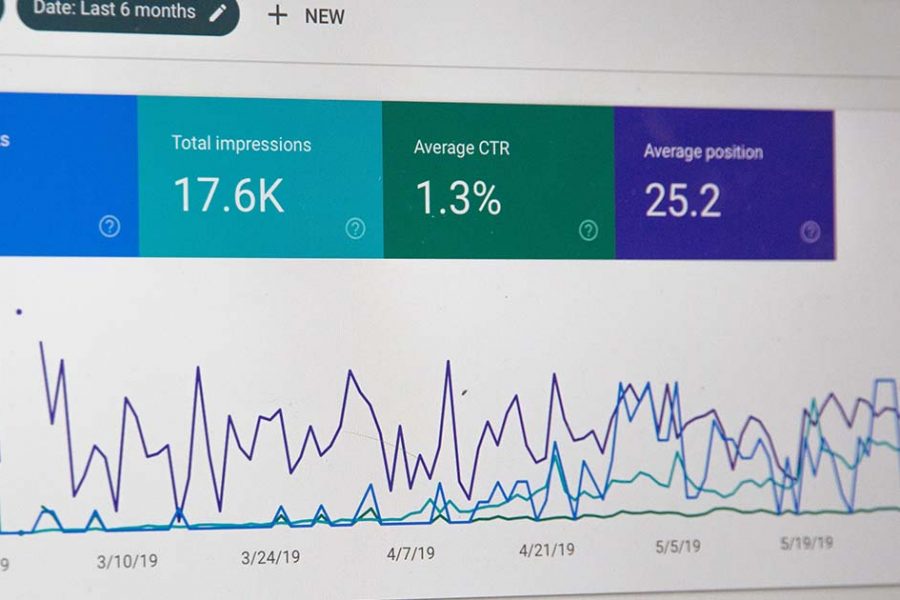Before you begin to think about the design of your website you need to decide what pages to include on it and construct a sitemap. We have laid out the 7 most important pages for a recruitment website but there are others you could include. The scope is yours to decide but this is a great starting point. Just be sure that your copy is slick and error-free, the design reflects your brand and your website as a whole gives the right impression of your business. Remember, this is your chance to impress!
Homepage
This is the page many users will land on first so it needs to impress straight away. Think of it as your shop front – you want to entice users in to see what you offer. Make it clear what your business is and what areas you recruit for and do this not just through your copy but in the design choices you make. Pick your colours, typography and images carefully as this is your opportunity to boost your branding. Give an overview of what you do, establish credibility as an agency at the top of your game, and provide clear navigation.
About Us
This is where you sell you. Your business, your people, who you are, what makes you different. What gives you the edge over your competitors? Be interesting. Share your history. Show some personality. After all, recruitment is a people-focused industry so don’t be afraid to show who you and your employees are. Include pictures of your team as that helps to build trust, especially at a time when so many are still working from home. This is also where you can communicate your core values, experience and any awards won.
Jobs page
It may seem like a given to have a jobs page on your recruitment website but a surprising number don’t. Your website is far more than just a platform from which to advertise your business, it should be at the centre of your candidate attractionstrategy. There will always be a place for job boards but that doesn’t mean you should neglect your very own website, a free platform from which to advertise your jobs. Our data shows that recruitment websites receive an average of 2,500 visits per month – that’s a tremendous number that could potentially be applying for your jobs. It also gives you the chance to begin to create your own CV database. In other words, having a jobs page is a win/win.
Contact
You want clients and candidates to be able to easily contact you so don’t make it hard for them. Ensure your contact page can be easily found from every page on your website. Make it even easier by including a call to action linked to your contact page from each page. On the page itself include a physical address, email address and phone number, plus your social links. You may have your contact details and social buttons at the footer of every page anyway but most people look for a dedicated page so by having one you’ve got all bases covered. You may wish to include a form but make it optional by including alternative methods of communication for those that don’t want to fill in a lengthy form – you don’t want to lose a lead because they were put off by filling in a long form.
Privacy Policy
Boring but important, a privacy policy is a legal requirement if you are capturing personal data from website visitors. Most privacy statements are worded in the same way. Simply Google ‘privacy policy templates’ and the results page will be full of them, all with very similar wording. You can simply modify a templated version to suit your business.
Blog
There are numerous reasons a blog page on your recruitment website is a smart idea. It’s a great way to start a communication with your visitors and well researched and written, relevant articles that provide both insight and advice will position you as a professional agency and an industry authority, experts in your field. It will also encourage visitors to return so that even if they don’t perform a call to action this time, they might the next. It is an exercise in branding as much as anything else. It will also provide more opportunities for visitors to find your site as Google will index blog pages just like any other website page. Just remember to keep your blog page regularly updated as Google rewards fresh content.
Case studies and testimonials
A solid case study or good testimonial is worth its weight in gold. A case study focuses on the client’s perspective and demonstrates success objectively. You can talk at length about how fantastic you are but hearing it from a client or a candidate is priceless, which is why both case studies and testimonials can be incredibly persuasive. With the approval of the client, you can either write a case study yourself or employ a copywriter. The best way to get a testimonial from a previous client? Just ask. Even better, request that they send an example of how you helped them rather than a generic statement as that carries more weight. If they’ve said something complimentary in a telephone conversation you could use that too, just get the OK from them first. A photo, if they’re willing, also helps with credibility.
These pages are by no means an exhaustive list but are a good foundation for any recruitment website. What’s important to remember is that your website can be an incredibly effective tool to advertise your business, boost brand awareness, position yourselves as a leader in your field, and get your jobs seen by more candidates. Do it right and your website can work hard for you, becoming an integral part of your candidate attraction strategy.





